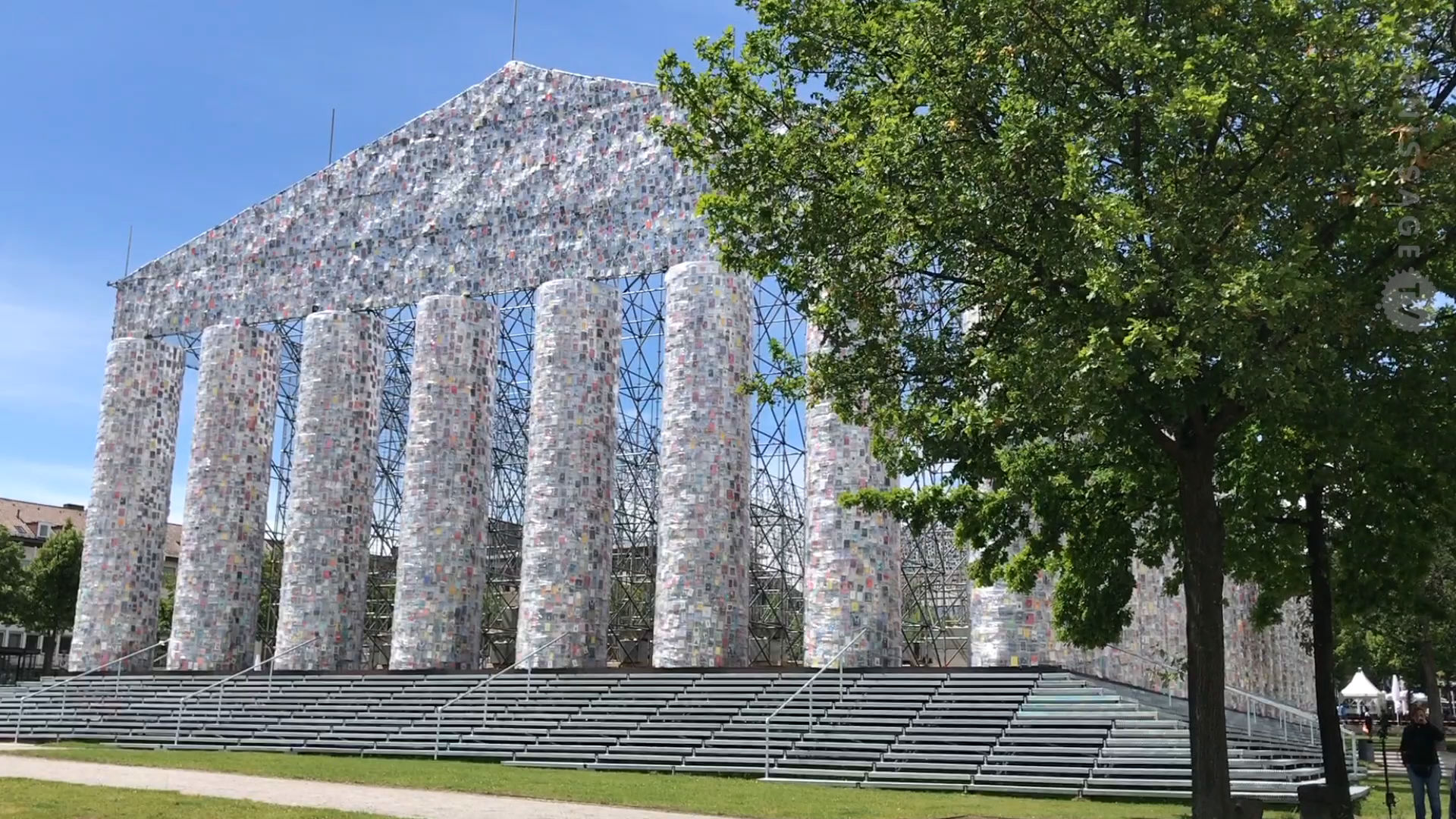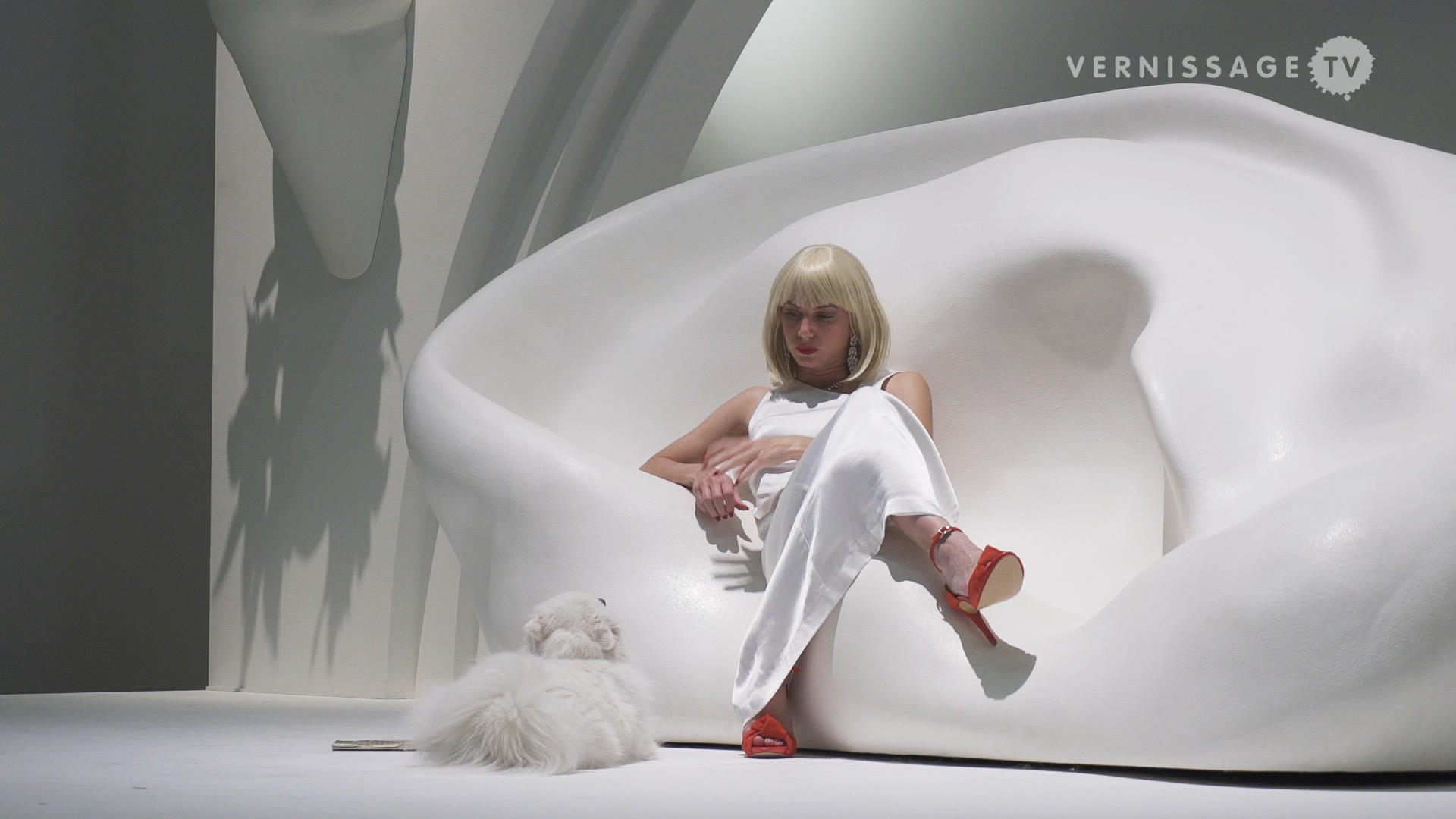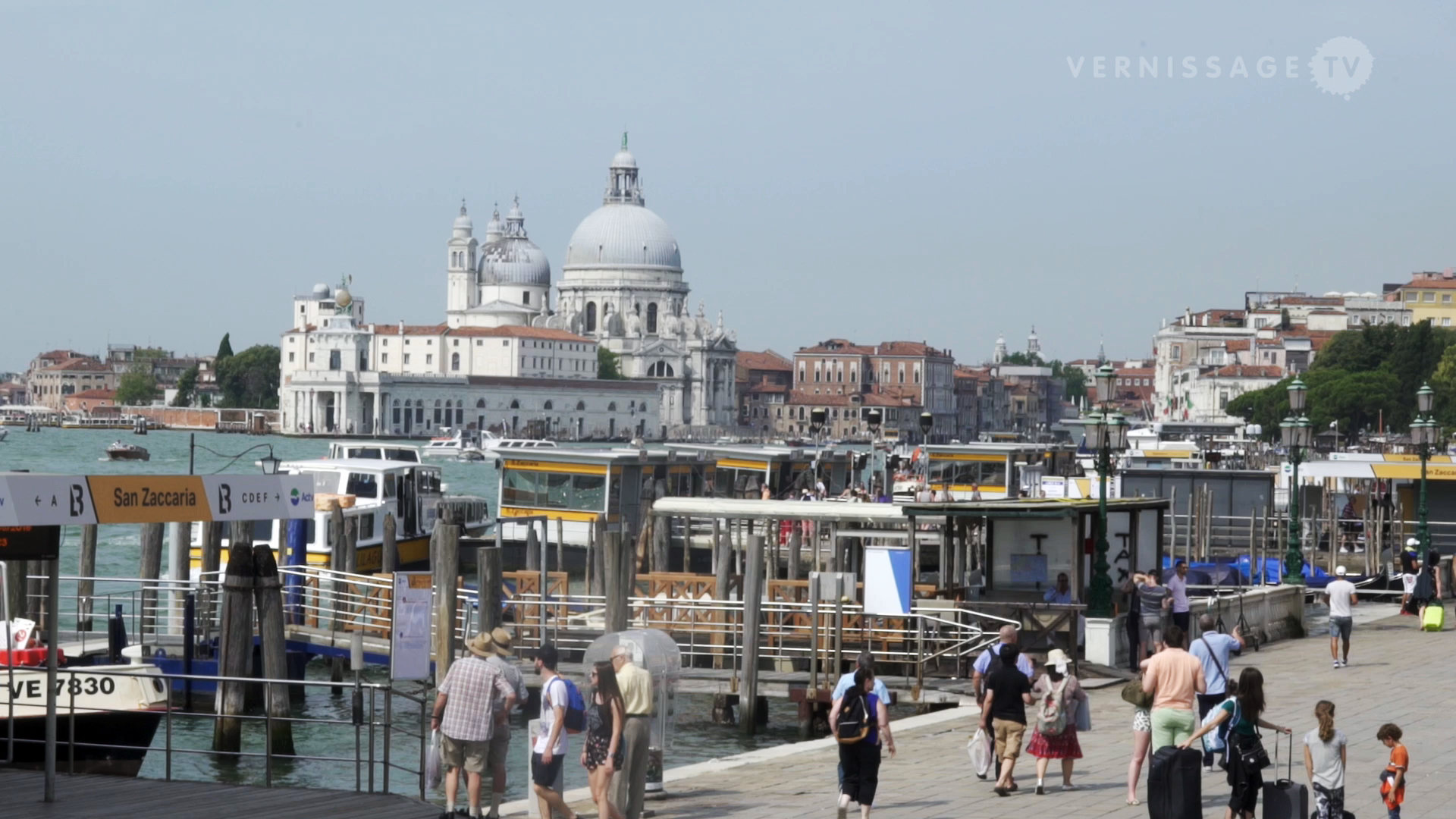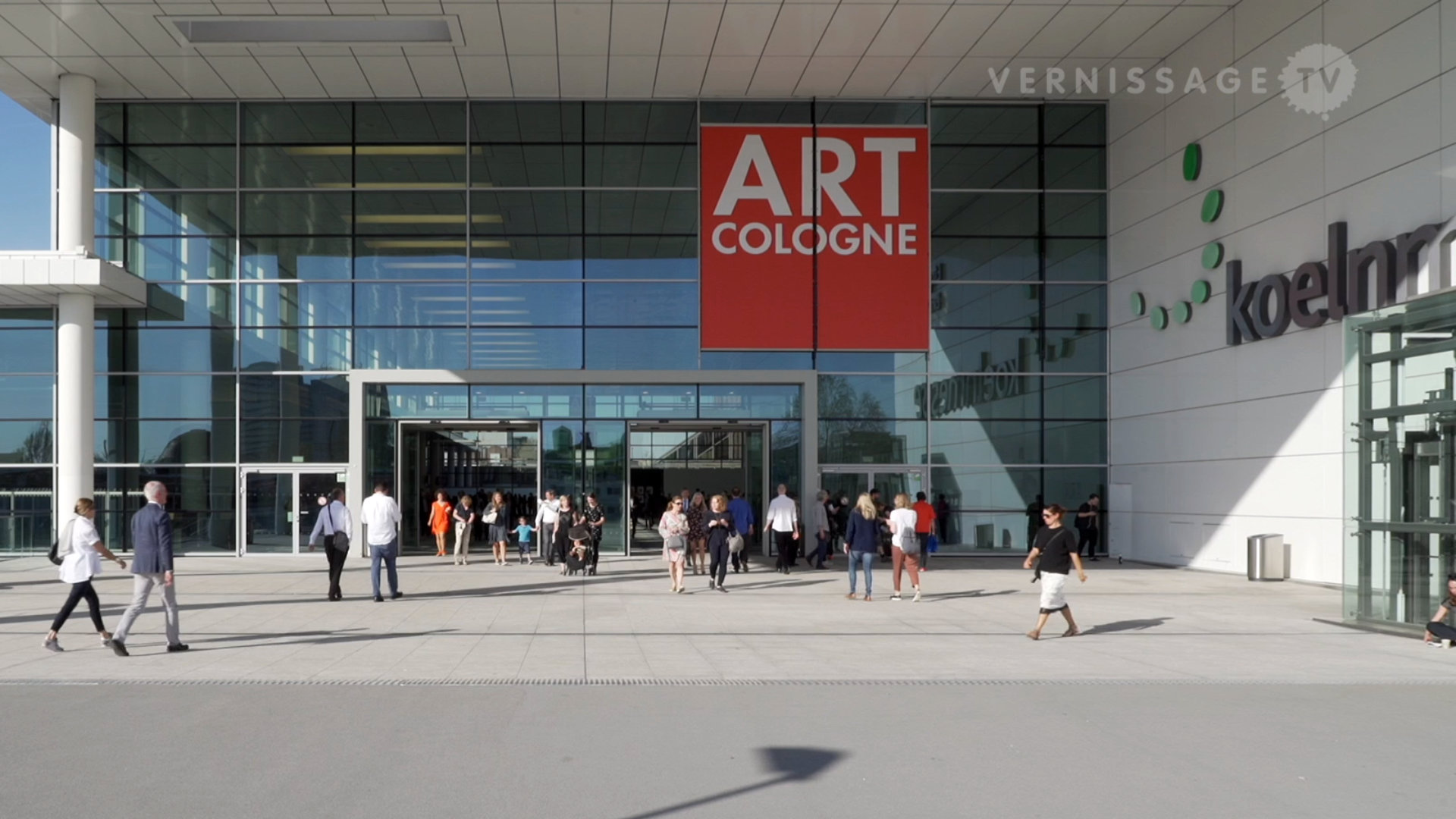For the past fifteen years, Lauren Lee McCarthy has worked in performance, video, installation, software, artificial intelligence, and other media to address how an algorithmically determined world impacts human relationships and social life. Lauren Lee McCarthy’s current show at Mandeville Art Gallery, UC San Diego, La Jolla, is called “Bodily Autonomy”. The show brings together two major works — Surrogate and Saliva — to examine bio-surveillance. There’s also a new site-specific video by Lauren Lee McCarthy and Casey Reas for the exterior screen of the Mandeville Art Gallery. Bodily Autonomy is McCarthy’s largest solo exhibition in the United States to date and runs until May 25, 2024. In this video, the Director and Chief Curator of the Mandeville Art Gallery, Ceci Moss, provides us with in introduction to the Mandeville Art Gallery and Lauren Lee McCarthy’s exhibition.
Lauren Lee McCarthy: Bodily Autonomy. Solo exhibition at Mandeville Art Gallery, UC San Diego, La Jolla. Exhibition walkthrough and interview with Ceci Moss, Director and Chief Curator, Mandeville Art Gallery and Professor of Practice in Visual Arts at UC San Diego. La Jolla, March 7, 2024.
PS: Special thanks to Gallery Guide Stephania Torres-Londono for performing at the Saliva Bar.
— Right-click (Mac: ctrl-click) this link to download Quicktime video file.
Exhibition text (excerpt):
For the past fifteen years, Lauren Lee McCarthy has worked in performance, video, installation, software, artificial intelligence, and other media to address how an algorithmically determined world impacts human relationships and social life. Bodily Autonomy is McCarthy’s largest solo exhibition in the United States to date.
The show brings together two major works —Surrogate and Saliva—to examine bio-surveillance. Surrogate takes the form of performances, videos, and installations wherein McCarthy offers her body up as a remote-controlled surrogate to individuals and couples interested in having a child. This proposition is never fully realized by the artist, but it prompts important conversations regarding familial norms, legal barriers, genetic manipulation, gender, and reproduction. Saliva is a series of performances, installations, and videos about DNA sampling and data harvesting through the routine collection of swabs and spit. In a newly commissioned installation at the Mandeville Art Gallery, as a counter-gesture McCarthy has devised a saliva exchange station where visitors can trade their own samples with one another through the assistance of an attendant. The process sidesteps the anonymity of medical and corporate entities, and invites active discussions on data privacy, race, gender, and class as they pertain to genetic material. Together, Surrogate and Saliva encourage a potent and timely dialogue regarding bodily autonomy in times of rapid technological development and increased corporate and government surveillance.
Bodily Autonomy marks the official premiere of Saliva and Surrogate, both Creative Capital–funded projects.
Lauren Lee McCarthy (she/they) examines social relationships in the context of automation, surveillance, and algorithmic living. She has received grants and residencies from Creative Capital, United States Artists, the Los Angeles County Museum of Art, Sundance, Eyebeam, Pioneer Works, Autodesk, and Ars Electronica. Her work SOMEONE was awarded the Ars Electronica Golden Nica and the Japan Media Arts Social Impact Award, and her work LAUREN was awarded the IDFA DocLab Award for Immersive Non-Fiction. Her work has been exhibited internationally, at the Barbican Centre, Fotomuseum Winterthur, Haus der elektronischen Künste, the Seoul Museum of Art, Chronus Art Center, SIGGRAPH, Onassis Cultural Center, IDFA DocLab, Science Gallery Dublin, the Japan Media Arts Festival, and beyond. McCarthy is the creator of p5.js, an open-source art and education platform that prioritizes access and diversity in learning to code, with more than ten million users. She expanded on this work in her time on the board of directors for the Processing Foundation (2015–21), whose mission is to serve those who have historically not had access to technology, code, and art in learning software and visual literacy. McCarthy is a professor at UCLA Design Media Arts. She holds an MFA from UCLA and bachelor’s degrees in computer science and art and design from MIT.
About Ceci Moss:
Ceci Moss is a curator, writer and educator with twenty years of professional practice. Moss was the founder and director of Gas, a mobile, autonomous, experimental and networked platform for contemporary art located in a truck gallery parked around Los Angeles and online. All of the gallery’s activities – from exhibitions to editions – are archived in an online publication.
Ceci Moss has a MA and PhD in Comparative Literature from New York University, and a BA in History and Sociology from U.C. Berkeley. Moss’ book “Expanded Internet Art: Twenty-First Century Artistic Practice and the Informational Milieu” is published through the Bloomsbury series International Texts in Critical Media Aesthetics. Prior to UC San Diego, Ceci Moss has held teaching positions at California College of the Arts (CCA), the University of Southern California, Scripps College, the San Francisco Art Institute and New York University.
Since 2005, Ceci Moss has worked in non-profit arts organizations in various curatorial, editorial and fundraising capacities. Previously, Moss was the Assistant Curator of Visual Arts at Yerba Buena Center for the Arts, the Senior Editor of the art and technology non-profit arts organization Rhizome, and Special Projects Coordinator at the New Museum of Contemporary Art. Ceci Moss’ wide-ranging curatorial projects encompass numerous exhibitions (both solo and group shows), public art commissions, public programs and publications.




